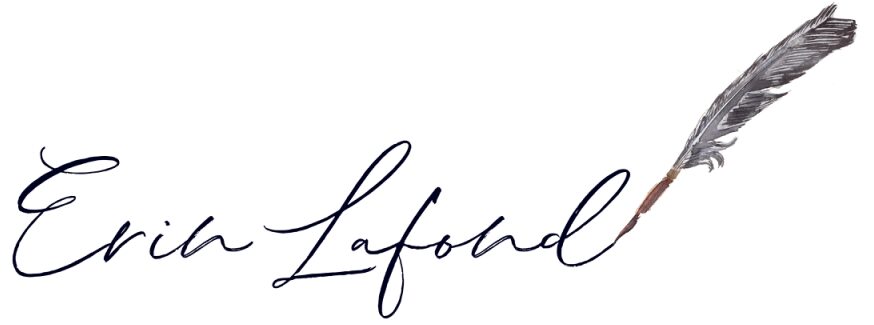Tips for Writing Great Dialogue
Last updated on October 4th, 2023 at 02:56 pm
One of the biggest things new writers and even intermediate writers tend to struggle with is dialogue. This makes sense because writing great dialogue is tricky. You’re trying to do multiple things at once. You want your characters to sound authentic, like real people. But you’re also trying to accomplish specific things with your dialogue, whether that’s exposition, character development, or plot progression. On top of that, you’re trying to sound like a specific person who might be incredibly different from you as a person. So, how do you accomplish all of that? How do you write authentic dialogue in your character’s specific voice?
I’m coming at this from a unique perspective. As someone with a bachelor’s and master’s in English, I’ve spent a lot of time studying storytelling and how it works. As a marketing professional, I’ve spent a lot of time learning how to use and write in different brand voices. So, that’s the angle I’m going to approach this. We’ll go through my top tips, so you can have great dialogue that serves your story and shows your characters.
Understand your characters
Let’s start off with the most important part of writing great dialogue, which is less about the actual dialogue and more about understanding your characters.
Until you understand exactly who your characters are, you won’t be able to create authentic dialogue for them. Now, not every character is going to need the same level of development. If you have a minor character who only shows up in one or two scenes, you only need to know enough about them to understand their role in your story and roughly how they would communicate.
However, when it comes to your major characters, the characters who are speaking all the time, you have to understand them in depth. This goes beyond the basics like hair color, age, and physical build. It even goes beyond things like sexual orientation, religious beliefs, education, and social class. Don’t get me wrong. These things are important, and they will also heavily inform your dialogue. But the key to writing good dialogue is understanding your character’s behavior.
Here are the big things you should understand about your character in order to write authentic dialogue for them:
Temperament
What are their habits, flaws, and temperament? Temperament is a big one. Do they get angry too easily? Are they bubbly? Are they passive? That will play into their dialogue.
Relationships
You should understand their relationships – how do they feel about their parents? Who are the big players in their romantic history? Do they have a best friend? Is there someone they hate more than anyone else? Understanding their relationships helps you create better dialogue with each specific person. For example, if they hate their dad, then they’re probably going to talk to their dad differently than they talk to their best friend. If they’re afraid of their boss, they’re going to be nervous or deferential during scenes with them, which will impact the dialogue.
Their past
You should know their past – Where did they grow up? Where did they go to school (or did they not go to school)? What was their childhood like, and how do they feel about it? What was the environment in which they learned to speak like? Were they told to be quiet? Were they encouraged? These are things that are going to affect how they speak.
How they would react to different situations
One trick I like to do is think about how my characters would react in random situations. How would they react if someone accused them of lying? How would they react to catching someone in a lie? What if someone they loved died? What if they found out they were having an unexpected kid? It can be a fun exercise to put your characters into complicated situations and think about what they would do. This helps you understand them better and could maybe even help you develop your story.
Think critically about how your characters would speak
Now that we understand our characters, we can get into their actual dialogue and the choices we make as writers. This is where my marketing background comes in.
Dialogue is just writing in someone’s “brand voice.” What does that mean? So, someone’s brand voice is essentially what they say and how they say it. When you write in someone’s brand voice, you’re using their specific personality and thinking about how that specific personality would speak. Just like with everything else when it comes to writing, you’re making very specific choices when you write dialogue. You have to consider the phrases the character would use and the stylistic choices they would make. I think I just wrote the words specific and choice like ten times just then, but that’s all writing is. A series of specific choices.
Here are some questions to consider when you’re first starting to think this through. This is by no means an exhaustive list. It’s just a starting point to get across what I mean.
Are they formal or informal? So, do they use contractions when they speak or not? Do they add things like “man” or “dude” when they talk to someone? When speaking to a group, do they say, “Hello, everyone,” or do they say, “Hey, y’all”? Do they like to be sarcastic? Does it seem like every sentence they say should end with an exclamation point?
Once you develop your character’s “brand voice,” so to speak, it’ll get easier over time to intrinsically understand how they would talk in a given situation. And remember, that’s the big key. We don’t speak the same way all the time. We shift and change depending on who we’re talking to and what we’re talking about.
This is why your base, understanding your characters, is so important. If you don’t understand your characters, then you probably won’t know how they specifically shift and change and how that affects their dialogue. This brings us to:
Consider the situation
We’ve already gotten into this a bit, and I don’t want to belabor the point, but this is an important part of writing great dialogue. You always want to consider what’s actually happening in a scene to understand what the dialogue needs to accomplish.
Every human being has many sides, and they speak differently depending on the situation. How you’d speak in a job interview is different from how you would speak to your mother, which is different from how you would speak to someone you hate. To take it another step, how you speak when you’re angry is different from how you would speak when you’re happy. This means, annoyingly, your character will never speak the same way all the time.
So, when you’re crafting your dialogue, consider who they’re speaking to, why they’re speaking to them, and how they would talk to them, considering that situation.
Write how you talk
By this, I mean write how YOU talk. Now, let me explain that because it feels contradictory, right? You’re writing this very specific person (we just went over that), but you should write the way you talk.
As we’ve already established, people speak differently depending on who they’re talking to and why. You as a person contain multitudes, which means you as a person don’t speak the same way all the time.
So, channel those different sides. Maybe you have a character who’s incredibly formal in their speech, so they talk more like how you would in a job interview. Maybe they’re incredibly bubbly, so they’re more you when you’re with your best friend.
You’re still going to make different choices from that character, so you still need to evaluate things like word choice, inflection, and tone. However, writing the way you talk can be a good starting point and help you to create authentic dialogue that matches how a person would actually talk.
Every character I’ve ever had is their own unique person, but they all talk a little bit like me. One of my friends recently told me that whenever a character is being funny, she can hear my voice a little bit. She recognizes me in my funny lines. You probably wouldn’t if you didn’t know me really well, but that’s how I create authentic dialogue that makes sense. I think about how I would say it, and then I tweak it to match the character and the situation.
If that doesn’t work for you, think about how someone in your life would say it. If your character is similar to someone you know, how would they say that bit of dialogue? Again, you might need to tweak it, but it can be a great way to understand how people actually speak, which will get you closer to writing great dialogue that feels authentic to your readers..
Exercise
I’ve got an exercise for you.
If you’re struggling with creating different types of dialogue, I would recommend taking some time and practicing how you can write in different voices.
To do this, you can take the same sentence and write it in different ways. You can write it casually or formally or bubbly or assertively or friendly using the same starting point.
So, for example, “I can’t make the meeting today” is your starting point. It’s basic and casual. Gets the point across. But how would you write that in different ways?
Formally, it might be, “I cannot join you at the meeting today. Please let me know if there is anything from the meeting I need to address.” Bubbly, it might be, “Oh, no, I can’t make the meeting today! I’m so sorry!” Assertively, it might be, “I already told you I can’t make the meeting today.” Informal might be, “Aw, man. I can’t make the meeting today. Sorry about that.”
Open a book, pick out some random dialogue, and think about how you would rewrite it in different ways to get the same point across.
Dialogue can be difficult, but if you practice, it is something that will get easier over time.
Got questions? Comment below, and I’ll try to answer them! If you want more tips, you can sign up for my newsletter and get regular tips sent to your inbox.

